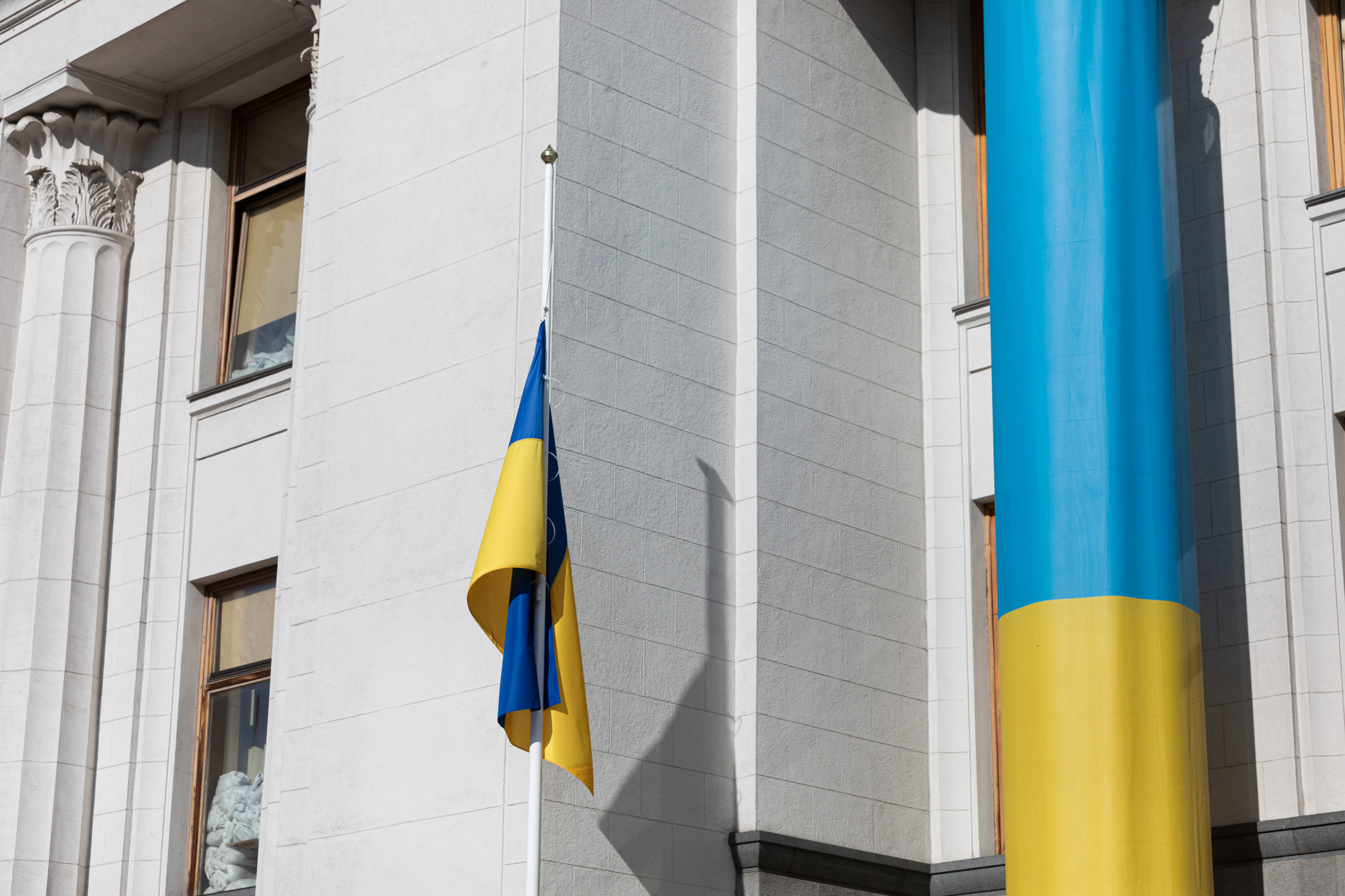During the first months of russia’s full-scale war against Ukraine, changes to the tax legislation aimed at assisting businesses were initially fragmented and sometimes erroneous. Later, the government and deputies began making efforts to restore the pre-war taxation rules. Starting in the fall of 2022, the government and MPs introduced a series of exemptions designed to strengthen the resilience of the Ukrainian economy and the country’s defense capabilities, particularly in light of blackouts and increased military needs, including the increase in the number of drones. However, on the other hand, these tax exemptions reduce the budget revenues, which have already plummeted due to the war. How did the government attempt to balance these needs, and what can be expected going forward?
Restoring tax legislation
Back in the summer of 2022, deputies reinstated VAT on imported goods, which had previously been reduced to zero at the beginning of the full-scale war, with hopes of a swift conflict. From October onwards, the deputies partially restored excise duties on fuel while maintaining a 7% VAT rate on it. They also passed a decision for the complete restoration of excise duties and the return of VAT to a 20% rate starting from July 2023. This last decision increased clarity regarding future tax rates, allowing businesses to prepare for the full restoration of taxation. It was a positive step, as most changes in tax and other legislation were enacted after the start of the big war, with provisions such as “until the end of martial law” or “N months after the end of martial law,” which hindered tax system predictability.
An essential aspect of restoring the old taxation rules is the adoption of Bill No. 8401. This bill focuses on abolishing the 2% flat rate of the Unified Tax for a wide range of taxpayers (it is worth noting that the lawmakers were able to remove representatives of the gambling industry from benefiting from this rate back in the fall of 2022). Individual entrepreneurs in the 1st and 2nd groups of simplified taxation will no longer be exempt from paying the Unified Tax. However, according to the State Tax Service, not all entrepreneurs were utilizing this exemption and continued to pay taxes at the previous rates. The bill also includes reinstating documentary tax audits (many types of audits were reintroduced before the end of 2022). If this bill is passed, penalties for violations related to using cash registers will also be reinstated. It is advisable to adopt this bill as it will contribute to increasing budget revenues and reducing distortions in the system caused by the existence of such a preferential simplified taxation schemes.
Higher budget revenues are crucial today, as domestic revenues, particularly from taxes, are the main source of funding for the country’s defense capabilities. According to the Ministry of Finance’s estimation, this bill will generate an additional fiscal revenues at 10 billion UAH in 2023.
Furthermore, the submission of this bill by the government to Parliament served as a structural benchmark in the Program Monitoring with the IMF’s Board involvement. Its adoption is a structural benchmark of the Extended Fund Facility program, signed at the end of March 2023. This structural benchmark needs to be fulfilled by the end of June 2023. However, there is a risk that it may not be achieved due to the significant number of amendments proposed by MPs during the preparation of the draft law for the second reading.
Tax breaks for generators and more
In October and November, Ukraine faced an electricity shortage due to the destruction of energy infrastructure by russian terrorists. As a result, there was an urgent need for businesses and the population to acquire a large number of generators, batteries, accumulators, and other devices to get through the winter. The government introduced incentives to enhance businesses’ and individuals’ ability to purchase these goods. On November 9, 2022, the Cabinet of Ministers adopted a resolution that granted exemption from VAT and import duties for generators, transformers, heaters, and other goods crucial for the heating season. This step was timely and appropriate, but the approach to implementation was rather peculiar. The changes were made to the resolution on measures to counter Covid-19, allowing the Cabinet of Ministers to intervene in matters of tax rates that Parliament should determine through amendments to the Tax and Customs Codes.
Later on, despite the government’s relatively late submission of draft laws, on December 13, 2022, deputies adopted regulations No. 2836-IX and 2837-IX, which came into effect in January 2023 and introduced changes to the Tax and Customs Codes regarding VAT and import duties exemption for the import of generators, Starlink, and other equipment for energy and communication. These privileges also applied to postal and express shipments. According to the law, these provisions ceased to be effective on May 1, 2023.
Considering the high demand for imported energy equipment, the government exempted the supply of necessary equipment from VAT and import duties. With this decision, the government allowed its procurement without considering the localization requirements of the legislation.
Tax breaks for drones
Another area of change was the introduction of privileges for components of drones, which are in high demand on the front lines. On September 27, 2022, the Cabinet of Ministers adopted Resolution No.1091, which established a list of goods imported into Ukraine in a simplified procedure and exempted them from providing financial guarantees to customs authorities for payment of customs duties. In April 2023, drones, sights, thermal imagers, and portable radios were added to the list of goods in this resolution.
Later, in February 2023, Parliament exempted the import of copters, thermal imagers, collimators, night vision devices, and, upon the request of volunteer organizations, radios from VAT and import duties. However, this led to a decrease in competitiveness for Ukrainian manufacturers of similar products. Only in May the situation was somewhat balanced when the exemption from VAT and import duties were introduced for importing components (materials, units, aggregates, equipment, and assembly products) of unmanned systems imported by economic entities for their own production and/or repair of unmanned systems.
So…
Naturally, businesses and individuals always welcome tax reductions more than increases. However, there is currently no discussion of tax increases in Ukraine. The government aims to restore the pre-war tax system, as the current one distorts the market and leads to lower budget revenues. At the same time, simplifying the import of certain goods is necessary for supplying the army. Therefore, tax decisions often appear fragmented and unstable. It is unsurprising since everyone is still learning to adapt to the new realities. The government is currently dispersing the tax system by introducing separate tax benefits to address specific problems. Deputies often initially pass partial solutions that benefit importers but harm domestic producers, and then they have to reconsider and partially repeal those decisions. This increases uncertainty in the tax system.
Therefore, it is not surprising that several structural benchmarks of the new IMF program relate to the preparation of a medium-term State Revenue Strategy. However, preparing this strategy poses a significant challenge for the government because reaching a compromise on the tax system is currently difficult for the interested parties.
This article was prepared with the financial support of the European Union. Its content is the sole responsibility of Oleksandra Betliy and does not necessarily reflect the views of the European Union.
Attention
The author doesn`t work for, consult to, own shares in or receive funding from any company or organization that would benefit from this article, and have no relevant affiliations




